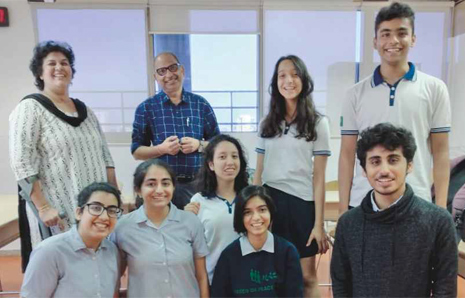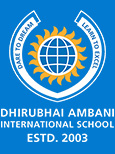Raabta
‘Raabta' a word that means 'connection' was born when we were
reflecting on the time we'd spent in school and the prospect of
moving abroad to college in a matter of months. Most aspects of
our personalities have been shaped by where we've grown up, the
languages we've spoken, the festivals we've celebrated, and the
movies we've watched. So, we wanted to create a platform in our
school that our peers could use, to have the conversations we've
had with each other.
When 'Indian culture' was taught to us at school, it was always
spoken about in an overly didactic way, typically focusing on
aspects limited to religion and history. In other times, it focused
more on the 'classical' aspects of our culture like music and dance,
leaving out the more contemporary and personally relevant art.
'Raabta' aims to move the focus away from this and normalize
communication regarding personal cultural experiences. We hoped
to emphasize the importance of meaningful discussions about our
shared heritage and experiences. Above all, we wished to make
light-hearted cultural conversation accessible to our juniors.
We wanted these conversations to occur in classrooms to allow
students to reflect on how permeable various aspects of culture
truly are. For example, in our English workshops, we screened short
clips from a TV show which highlighted the aspects of Indian culture
amid an evolution. The students were given space to share some of
their experiences growing up in Mumbai. The prompts ranged from
everyday experiences to more personal. Compelling bits from peerexperiences
were highlighted. However, this allowed gradual
reflection on how surface detail can tell you about someone's selfconcepts,
expectations, and values. We then led a group dialogue
on the various interpretations of culture and the different subliminal
and more apparent facets of it. Overall, we feel we managed to
foster a sense of community in the class.
In the Hindi workshop, we realized that conversations regarding Indian culture were already common, so we decided to shift the focus to the linguistic and cultural diversity of India. A pre-workshop session allowed us to screen a humorous video about regional stereotyping. This allowed us to begin the conversation on a lighthearted note. We worked with some students to introduce them to literary writing in Hindi. We guided them in crafting a short humorous poem about the prevalent regional stereotypes from their origins. Theplas and dhoklas featured heavily in these poems!

We hope that we were able to allow students to engage with an open discussion about stereotypes in a way that seemed accessible and non-intimidating. Furthermore, for many students, this was their first exposure to literary writing in Hindi. We hoped we were able to 'plant the seed' of literary awareness, encouraging them to explore the richness of Hindi literature independently.
Conducting this project has had a significant impact on us as individuals as well. While filming a video to document the work we do at Raabta, we realized how much we learned from our peers, our classroom workshops. One member of the team reflected on how so many of the experiences she had while growing up, she took for granted - be it hearing about the separation from her grandparents, playing in the rain during the monsoons, and even attending Sindhi weddings. These experiences are the ones that make us, and while globalization and politics shift cultural norms and identities, reflecting on our diverse cultural experiences gives us space to determine how we want the future of our communities and country to be.
Hope is like saudade on a spring morning.
-Bilal Moin

